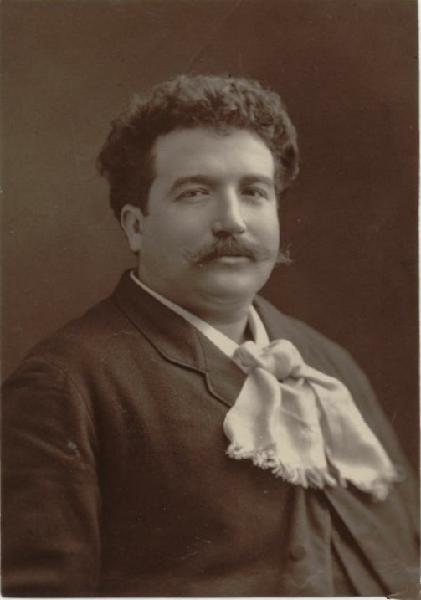Born into a large and bitterly poor family, he worked as an errand boy and later as a waiter in
Paris. Sources differ on who it really was, but some important operatic personality heard him sing by chance, and arranged an
audition with Ambroise Thomas, the director of the Paris Conservatoire. Sellier was admitted in 1872, and the director of the
Opéra, Olivier Halanzier-Dufresnoy, supported him with a grant during his studies. Sellier made his debut at the
Opéra in 1878. He was a huge success, and soon earned enormous fees. He was a favorite of both Gounod and Verdi.
At the Opéra, he sang Arnold, Masaniello, Polyeucte, Raoul, Jean de Leyde, Faust, Max, Éléazar, Karloo
(Patrie), Fernand, Radamès (perhaps his greatest triumph) and Sigurd (another role that he owned), plus two world premieres:
Manoël in Le tribut de Zamora by Gounod (1 April 1881), and Paolo in Françoise de Rimini by Thomas (14 April 1882).
In 1888, he had a severe hunting accident and had to pause for a while; he sang again in Marseille, at the Monnaie in Brussels
(where he created Matho in Reyer's Salammbô, 10 February 1890), and came back to the Opéra for the 1890/91 season,
but he never fully recovered and soon quit the stage.
Reference 1; reference 2:
Kutsch & Riemens
